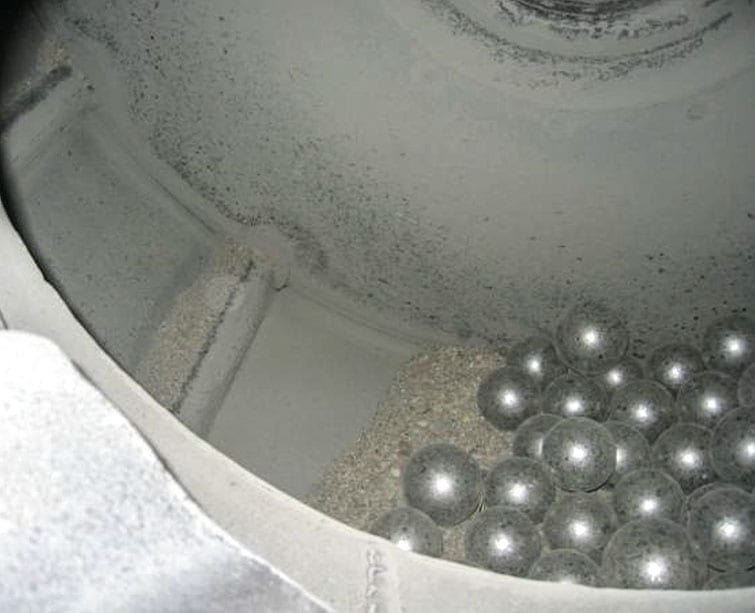JOEST builds plant with specially developed ball mills to process aluminum dross.
JOEST received an order, to build a processing plant for aluminum dross to be delivered by the end of 2019. The client from Krakau, Poland is a leading supplier of aluminum alloy in fluid form.
Dross is formed, when the oxide film on top of fluid molten metal is scraped off using a rake-like tool. Usually, dross consists of approximately 40-60% metal and 60-40% oxide. The objective of such a plant is to separate the metal from the oxide, to retrieve the metal as pure as possible and to dispose the oxide as waste. The oxide portion is also referred to as slag or dross.
The client is a secondary aluminum smelter mainly delivering fluid aluminum in big, thermally insolated containers with a temperature loss of only 10°C/h, for the automobile industry. The aluminum alloy arrives ready to be casted. Secondary aluminum consists of recycled material such as scrap metal, swarf, wheel rims and recycled material from the founding process. The client has an annual production of approximately 200,000t of aluminum.
The developed dual lane plant is capable of processing 2.1m³ of dross per hour. The bulk density of aluminum dross is 1.4 t/m³. It is fed by front loaders, which discharge the metal portion in a container. The core of the machine are two specially developed JOEST ball mills.
The main difference to other plant designs is that on the one hand, the degree of purity of the aluminum is very high. Depending on the set value, it lies between 90-97%. On the other hand, the duration of treatment for one batch (the machine operates in batches) is regulated automatically by a closed control loop. JOEST is looking forward to a successful business relationship and is eager to take on new challenges in the field of processing plants for all sorts of bulk material.

















